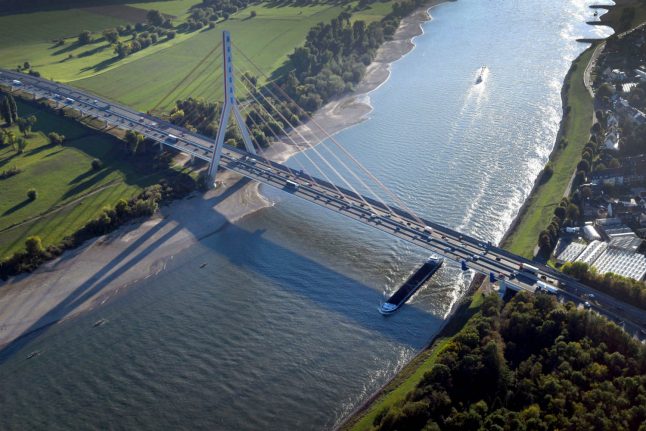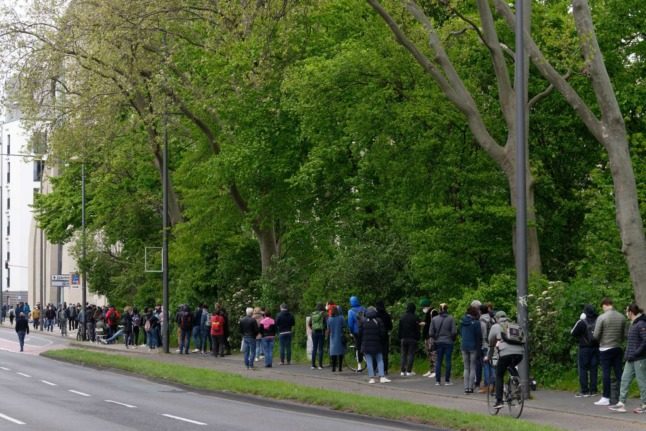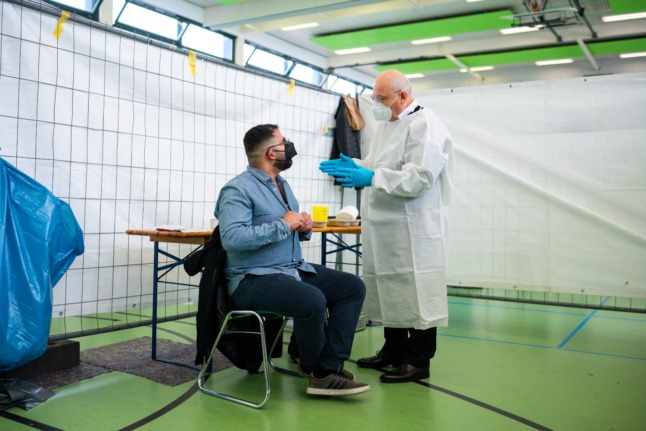The Fleher Bridge crosses the Rhine river and connects the western German cities of Düsseldorf and Neuss together. It is indispensable for the 85,000 commuters who travel over it every day, but as of Wednesday evening it will be closed for modernization repairs.
From 10pm Wednesday until 5am on Monday morning, the roadway will be sealed off, according to the NRW Roads Authority.
One of 573 bridges
The Fleher is one of 573 bridges in North Rhine-Westphalia which are dilapidated and in urgent need of repair, according to a statement published on Monday by the North Rhine-Westphalia Transportation Ministry.
The ministry examined a total of 920 bridges following a parliamentary inquiry launched by the state’s Alternative for Germany (AfD).
SEE ALSO: Bridge collapse 'cannot be ruled out' in Germany, says expert
However, it’s likely that the list will grow to be even longer, as the ministry still needs to inspect an additional 200 bridges with regard to their age, method of construction and level of traffic congestion.
For safety reasons, weight restrictions have already been imposed on eight bridges in the state, Germany's most populous, such as the Leverkusen Rhine Bridge.
The cost of modernizing the bridges to make them “driveable” has already amounted to €107 million between 2015 and 2018, according to the state’s Ministry of Transportation.
Bridging the gap
The majority of the bridges in North-Rhine Westphalia in need of repairs were built between the 1950s and 1970s. One prominent example is the scenic Ruhrtal Bridge, on which the A52 runs between Essen and Düsseldorf.

The Ruhrtal Bridge. Photo: DPA
“In order to cope with the increasing flow of traffic, these bridges have to be renovated,” wrote the NRW roads authority.
Since 2016, there has been a noticeable increase in construction on North Rhine-Westphalia's roads – yet more money is also being invested.
In 2018, for example, the budget of the state company climbed to €1.4 billion for the first time, and a similar amount of money will flow in 2019.
By way of comparison, in 2015 the NRW Road Authority had spent slightly more than €900 million on road construction. These additional investments also generated more traffic jams on the motorways due to the increased construction.
Whereas in 2015, there were a total of 247 traffic jams which lasted longer than a day, there were more than 330 projects each year in the years that followed.
SEE ALSO: The German cities with the worse traffic jams
A major undertaking
The Fleher Bridge, which is used daily by around 85,000 vehicles (12,000 of which are trucks), does not need to be rebuilt, but it does need to be comprehensively repaired. The work is expected to take five years, according to the NRW Roads Authority.
The bridge will then be able to cope with traffic on all six lanes. In the course of routine checks in April 2018, cracks were discovered in the diagonal struts that support the overhanging carriageway slab to the left and right.
Since then, two lanes have remained open in each direction, and truck traffic can also use the bridge.
The state of bridges in Europe has been an especially focal point of discussion since August 2018, when a large bridge collapsed in Genoa, Italy killing 43 people. It was completely demolished in June in order to make way for a new structure.
SEE ALSO: Concern over state of Berlin's bridges after figures show more than 40 have defects
Vocabulary
Indispensible – Unentbehrlich
Traffic congestion – (die) Verkehrsbelastung
driveable – befahrbar
By way of comparison – Zum Vergleich
Repaired – saniert
We're aiming to help our readers improve their German by translating vocabulary from some of our news stories. Did you find this article useful? Do you have any suggestions? Let us know.





 Please whitelist us to continue reading.
Please whitelist us to continue reading.
Member comments